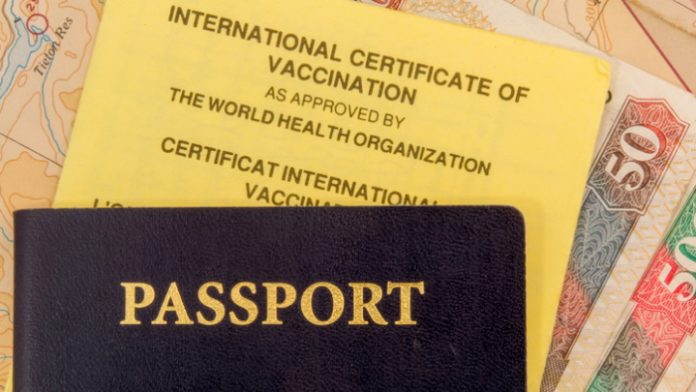Estonia is taking the lead in global efforts to develop digital vaccine passports. It is working on a pilot project with the World Health Organisation (WHO) on how globally recognised electronic vaccine certificates might work. But there are now so many emerging digital vaccine passport initiatives worldwide that they are causing significant confusion as well as raising urgent questions about privacy and human rights.
Estonia in theory allows arriving passengers with a proof of COVID-19 vaccination to avoid quarantine requirements. The certificate must meet certain criteria, including information saying when the vaccine was made, which vaccine was used, the issuer of the vaccine and the vaccine batch number. The certificate must be in either in Estonian, Russian, or English.
The WHO and Estonia are developing a digitally enhanced International Certificate of Vaccination, a “smart” version of the global yellow fever paper vaccination card. Digital vaccine certificates are an attractive prospect, particularly for pandemic-hit countries that depend on tourism.
The agreement covers working together across a range of digital health projects and innovations in addition to the vaccination card. These include a global framework for health data interoperability, and guidelines for national ePrescription and eDispensing systems as well as the European Roadmap for the Digitalization of National Health Systems.
Estonia is becoming a regional and global front runner in digital health, working to create digital public services that are freely accessible by all. Estonia helped pioneer Skype, e-voting and delivery robots.
There is however a problem with electronic and paper vaccination certificates, in that they are easy to forge. Criminal gangs globally are already offering negative PCR test certificates to travellers who test positive.
The primary issue for the project must be to ensure that anyone checking the certificate can trust the source.
While Estonia already has its own system of electronic health records with vaccine information, most countries in the world do not and there is no mutual recognition across borders.
The WHO is moving cautiously and for the moment does not recommend vaccination passports for travel as it does not see them as sufficient guarantee of protection from transmission.
The conclusion so far in Estonia is that it is impossible to create a global digital ID in the coming months and that a mix of paper and electronic certificates is more likely.
The main focus at the moment is on elaborating global standards to develop a single common solution for checking the existence of healthcare providers.
Guardtime, an Estonian company, is developing a system for cross-border recognition of electronic health records using blockchain. Its product VaccineGuard uses blockchain to ensure protection. Personal and health data remain in the original location and the system provides cryptographic proof of the certificate, its issuance process and the authenticity of the vaccine.
The company is also working with Iceland, Hungary and Lithuania, as well as with AstraZeneca, the pharmaceutical giant producing one of the coronavirus vaccines.
The WHO-Estonia project is guided by the principles that people should be allowed to delete the data and tech companies should not be allowed to profit from the data that they handle.
But the introduction of vaccine passports poses essential questions for the protection of data privacy and rights. These passports build on sensitive personal health information to create a new distinction between individuals, based on their health status. This differentiation could then be used to determine the degree of freedoms and rights they may enjoy.








 ©2024 All rights reserved LaingBuisson
©2024 All rights reserved LaingBuisson 


